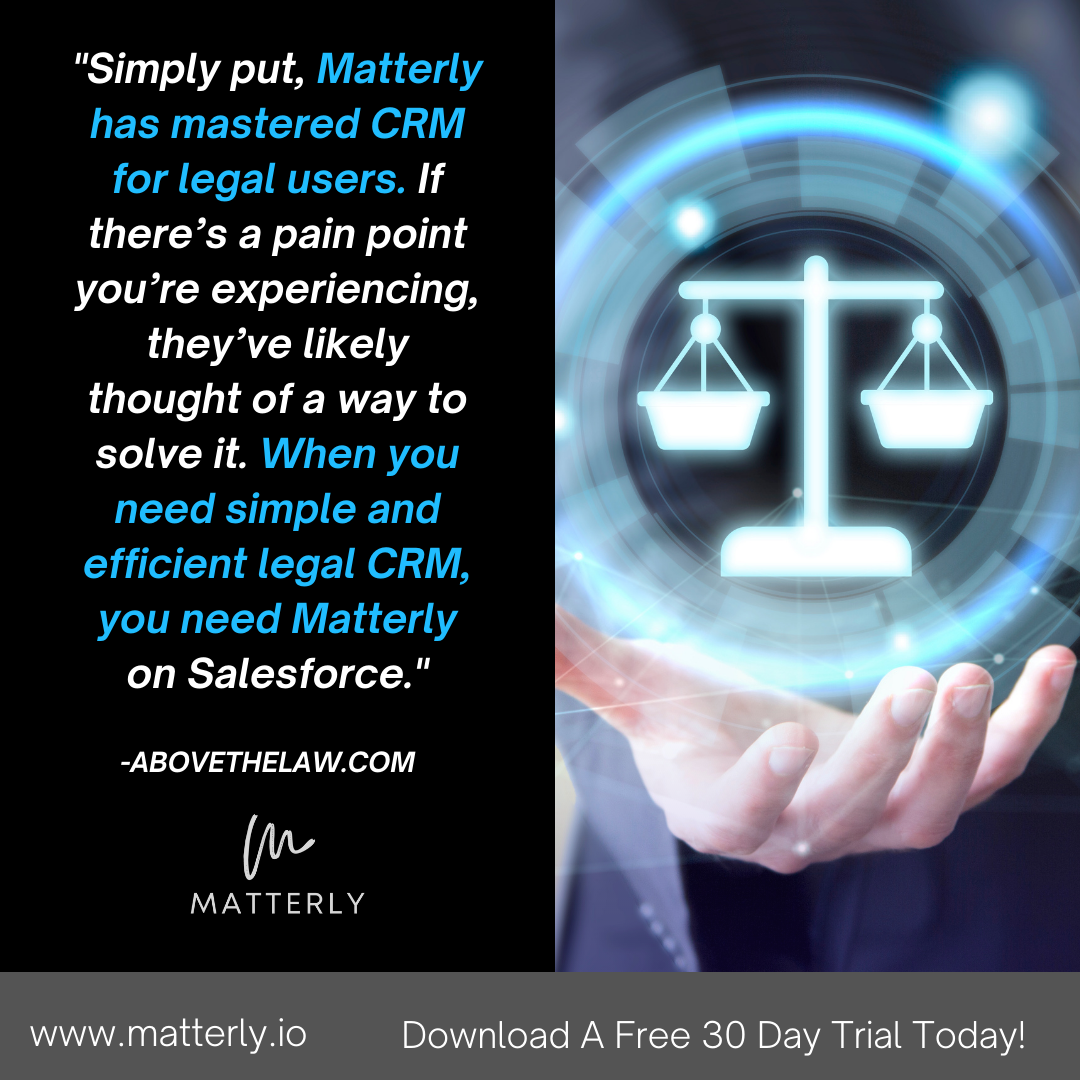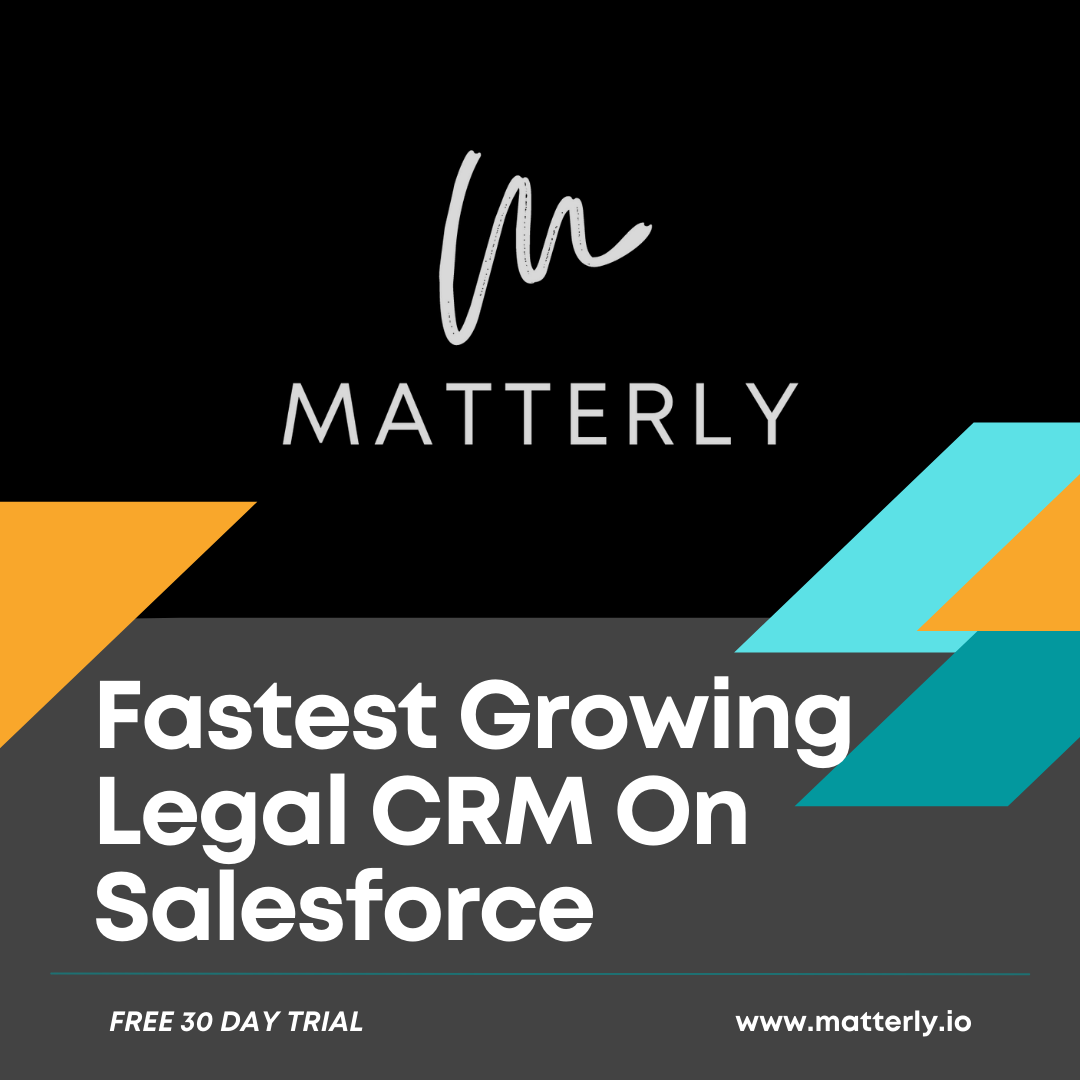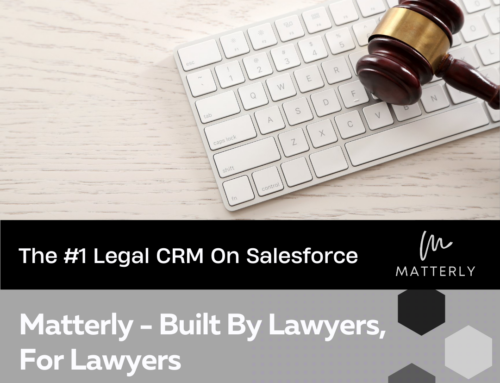An excellent legal CRM software enables companies to retain crucial information, profile prospective clients, and provide the best customer service. However, with so many fantastic propositions on the market, it can feel overwhelming trying to find the right product for your law firm.
To provide some guidance in this process, our list delves into some of the best legal software solutions on the market and ranks which is best in terms of the overall package.
Litify
Launched in 2016, Litify entered the market to help legal teams standardize and streamline their services. Its bundle package offers an all-in-one platform for medium to large-sized entities that simplifies processes and enables lawyers to focus on their clients.
CRM features
The company caters to multiple firm types, including general practice, plaintiff, and corporate legal firms. Its CRM product allows you to stay up to date with clients by creating tailored news feeds allocated to each party. These feeds act as touchpoints through which you may relay crucial information to customers.
It also allows your organization to create custom detail cards that give your team an overview of the client’s information so that communication is always personal and accurate.
One of the main selling points is that users get complete control in customizing features and setting up the app according to their organization’s needs.
Price point and overview
Prices are based on a per-user monthly basis model, with a rate of $200 per user for the whole company bundle. Individual features, such as the CRM solution, will be more affordable and depend on the organization’s size.
As a CRM platform Litify is an excellent option if you have a medium to a large-size organization, with plenty of different solutions available should you wish to optimize other areas of operations.
Clio
Another popular legal CRM software provider is Clio, offering an array of solutions that help clients track deadlines and manage clients, bills, and payments. The company’s platform is approved by over 70 law societies and bar associations, and it has an impressive global user base of over 150,000.
CRM features
Its Clio Grow solution is its leading CRM and client intake product. It’s important to note that it’s available as an add-on for clients already subscribed to the company’s Clio Manage or Clio Suite products. The add-on is available for $588 when billed annually or $708 per year when billed monthly.
The solution provides a good client management tool that ensures companies don’t lose out on leads. There are also plenty of opportunities to automate important tasks. You can automate the client intake flow and client communications. One of the best selling points is that Clio is designed with an array of integrations.
Platform Overview
Clio is a great CRM solution for companies of any size. Its product portfolio is a little more compact than other companies, so you know you’ll get the best customer service for your CRM platform. Many features can improve efficiency in your law firm at a competitive price.
If you’re only seeking CRM functions, however, you’ll be disappointed with the fact you’ll have to use the company’s Clio Manage and Suite products to get access. This means the solution could end up more costly than other similar competitors.
PracticePanther
Launched back in 2012, PracticePanther offers a cloud-based legal CRM software that can also be accessed remotely via a mobile app. The company caters to various law firms and can accommodate small to large-sized teams.
CRM features and overview
Some of the main features offered by PracticePanther include case and client management tools, easy-to-use time tracking, an e-signature tool, and a built-in payments processing system.
The company’s services come in at three price points – the Solo for $39 per user per month, the Essential for $59 per user per month, and the Business for $79 per user per month. Note that these prices are based on annual billing, saving customers on average $120 per year.
The CRM platform has plenty of features that will enable your law firm to optimize processes. One point users might find a disadvantage is that the learning curve is quite steep. The platform might feel overwhelming and take some learning before it can be efficiently used to help your company.
Matterly (Best Overall)

Finally, the best legal software on our list, providing a perfect combination of quality, value, and features, is Matterly.
CRM features and overview
The company is the first legal CRM built on Salesforce by actual lawyers. As a result, they understand your pain points and have created an efficient solution that actually resolves problems.
Another fantastic selling point is that Matterly’s platform is easy to use and learn, primarily due to its simple design and quality onboarding process. While other platforms will leave you feeling overwhelmed and underqualified, Mattrely ensures that you’re using the software to its full potential.
The simple and efficient design will enable your law firm to take advantage of Salesforce and provide the best tools for legal management. This includes insights through quarterly performance data, quickly assigning tasks to team members, custom matter entry wizards, and API integrations with Proof and Click2Mail.
Platform Overview
Matterly is unrivaled when it comes to ease of use and function.
The CRM platform adds actual value to law organizations and can help minimize client loss and improve client relations. Its software is also mobile-friendly and caters to lawyers who are often on the move. All information can be easily accessed from a mobile phone, which reduces the dread of messages piling up in the office.
Another fantastic feature is the easy-to-use time tracking tool, which turns an often dreaded task into an easy to manage convenience. This, plus various other features, such as email parsing, makes Matterly the most useful and best legal CRM software for your law firm.






Leave A Comment